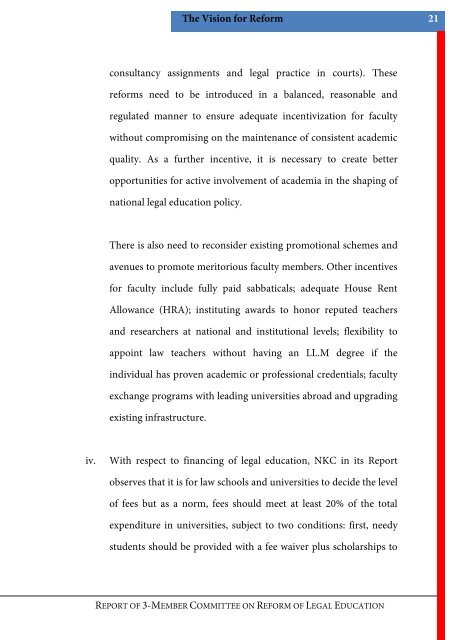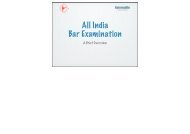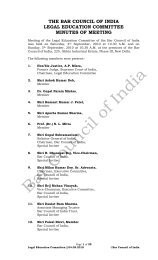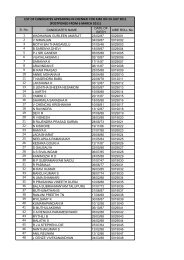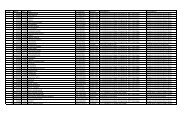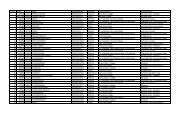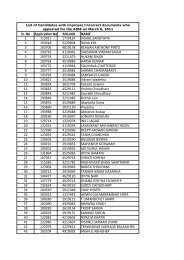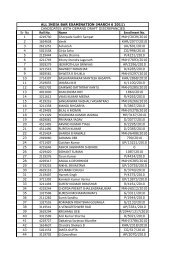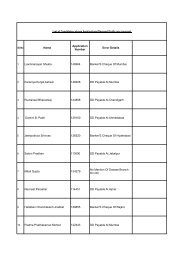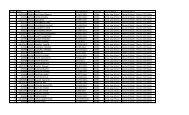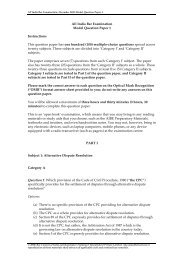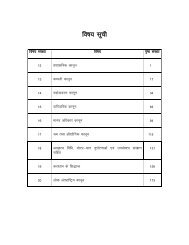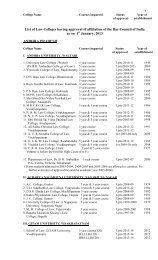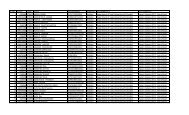FINALREPORT - The Bar Council of India
FINALREPORT - The Bar Council of India
FINALREPORT - The Bar Council of India
You also want an ePaper? Increase the reach of your titles
YUMPU automatically turns print PDFs into web optimized ePapers that Google loves.
<strong>The</strong> Vision for Reform 21consultancy assignments and legal practice in courts). <strong>The</strong>sereforms need to be introduced in a balanced, reasonable andregulated manner to ensure adequate incentivization for facultywithout compromising on the maintenance <strong>of</strong> consistent academicquality. As a further incentive, it is necessary to create betteropportunities for active involvement <strong>of</strong> academia in the shaping <strong>of</strong>national legal education policy.<strong>The</strong>re is also need to reconsider existing promotional schemes andavenues to promote meritorious faculty members. Other incentivesfor faculty include fully paid sabbaticals; adequate House RentAllowance (HRA); instituting awards to honor reputed teachersand researchers at national and institutional levels; flexibility toappoint law teachers without having an LL.M degree if theindividual has proven academic or pr<strong>of</strong>essional credentials; facultyexchange programs with leading universities abroad and upgradingexisting infrastructure.iv.With respect to financing <strong>of</strong> legal education, NKC in its Reportobserves that it is for law schools and universities to decide the level<strong>of</strong> fees but as a norm, fees should meet at least 20% <strong>of</strong> the totalexpenditure in universities, subject to two conditions: first, needystudents should be provided with a fee waiver plus scholarships toREPORT OF 3-MEMBER COMMITTEE ON REFORM OF LEGAL EDUCATION


